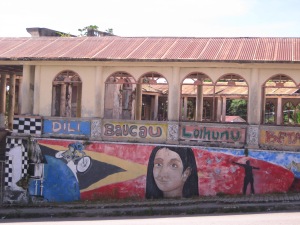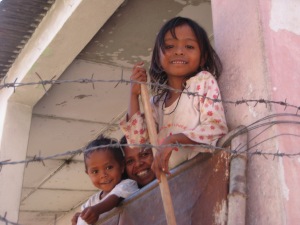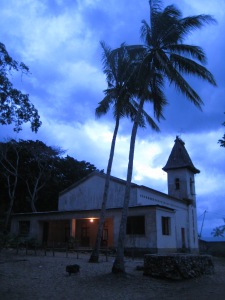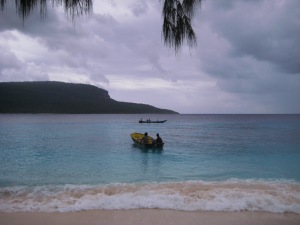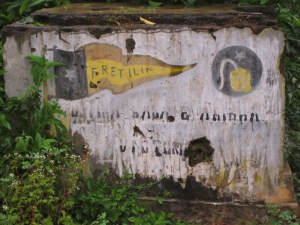We’re on a yacht cruising round the scattered islands of Vava’u, glasses of champagne in hand. I’m completely out of my depth, riding on the coattails of a mate who is much better at small talk than me. She can socialise with anyone, befriend everyone, and has generously wangled us the invitation to cruise. I’m no good in these fancy expat social settings – it’s a world away from the youth centres I usually work in. The bubbly is a very different drop to Pineapple Fanta, I have nothing to add to the conversation about luxury boats, and the best I can do is cringe when our hosts talk about how hard it is to get good help around here.
I know, cue the violins.
But the setting is superb – the boat, the turquoise water, the vacuum-sealed Pringles that aren’t even in the neighbourhood of stale. Plus, the Captain and his family are taking us to Mariner’s Cave – one of Tonga’s legendary snorkelling experiences. A free dive two metres down and about four metres across takes you into a cave teeming with ocean life and other magic.
Despite the opulent setting, I am poorly equipped. My snorkel is ill-fitting and scratched. I neglected to bring a waterproof torch and forgot flippers so my friend D is going to share hers with me. One each, a single flipper, for the most substantial dive I’ve ever undertaken. Needless to say, I’m terrified.
I wouldn’t even be trying this if it wasn’t for D.
The first time I met her was at a resort on the edge of Canberra, where we were bundled in for a week of cross-cultural training prior to taking up volunteer positions around the Asia-Pacific. D was fresh from climbing the Andes, a trip she took after first cycling the junta-ridden backroads of Myanmar. She’d grown up on a sheep stud, and had biked and hiked and travelled to the most remote corners of the world. Later, it came out that she was once in a plane crash off the remote Tasmanian coast and had to swim to shore with a broken back. In our break, undeterred by her lack of swimsuit, she jumped in the pool in her underwear and smashed out some laps while I was still chewing down on the Scotch Finger biscuits rolled out for morning tea. I was completely in awe of her. Too awed to strike up a friendship. In fact, by the end of the week, I decided that I had no business hanging around with D, or any of these other intimidating, worldly, foreign aid over-achievers. I was ready to drop out of the program all together.
But somehow I didn’t, and a few weeks later, D and I found ourselves at Sydney Airport, ready to board a plane to Nuku’alofa. Unfortunately, there was a pesky cyclone railing through the Pacific that day, so we got sent home. I caught the bus to my aunt’s house doubled over with all my gear; D got a romantic interest to collect her in a pick up truck and camped overnight in a beach cave somewhere in the Royal National Park.
Our second attempt at international departure was more successful, and we made it to the Kingdom of Tonga. I couldn’t stop looking out the taxi window: the wandering pigs, the acres of palm trees, the security guard wearing a slam dunking basketball t-shirt that said “Air Jesus – the Ultimate High.” Culture shock hit me like a rocket. I lay on the hotel bed under a lazy fan, breathing in the sickly sweet smell of frangipani and pandanus flowers. D headed out exploring.
Within a couple of days, the other volunteers organised an outing to one of the nearby islands. We were told that Pangaimotu was a popular Sunday outing, a ten minute boat trip from the capital with a beach, good snorkelling, and fish burgers that apparently tasted just like chicken.
D studied the map. “Just one or two kilometres from the shore, is it?” she asked one of the other girls. “I might swim over,” she told me. “Want to come?”
I declined. I took the boat with the others, and watched D arrive on shore an hour or two later, shaking off her snorkel, triumphant.*
Game of Thrones wasn’t in our popular subconscious back then, but D could have played her choice of characters: Daenerys Targaryen, Brienne of Tarth, Ygritte, Arya Stark. At best, I might have played Sansa, and frankly, that’s a stretch.
But somehow we became friends anyway. D is a generous facilitator of adventure, a surefooted leader. And I suppose I’m a determined and curious, if inept, follower. She took me to places I never would have dared alone: we kayaked the outer islands in a leaky boat, hitchhiked and skinny dipped on remote beaches, slept under coconut trees, cycled around the main island, scaled cliffs for obscure snorkelling spots. Together we lived with a local family for two or three months, honing our Tongan language skills, and yes, there was that free dive into Mariner’s Cave off the back of a luxury yacht that we had no business being on.
I’ve been thinking about that cave, that dive, that one flipper, especially these past few days. I feel like I’m sitting on a similar precipice, waiting to give birth to my daughter. A chasm of death that lies between life and life; I can see it from the boat. Two metres down, four across. Like a crossword. But I’m much better at Women’s Weekly cryptics than lung-crushing tunnels. They require more guts than I have. And once again, I’m ill-equipped, unprepared. I’m not ready. The waves are crashing around me, and this time there’s not even the option to stay on board with my glass of misgotten champagne. And I’m sorely resentful–bitter even–of what’s being demanded of me, of my body, despite what’s also promised in return.
“But aren’t you excited?”
This is what you get asked at 38 weeks pregnant.
“It must be so hard to wait!”
Oh, I can wait. The waiting is the easy bit. It’s diving in that’s the trick. Acceptance and surrender. Staring down the terror. The suspension of time. The excruciating pain. Some people do it so well, but I’m not one of them.
And in this case, there is everything that comes afterwards: those first weeks–months–of fractured body parts, sleep deprivation, and the need to soothe, feed and sleep a baby that doesn’t know how to soothe, feed or sleep.
If only I could take D into the birthing suite with me. In motherhood, as in life.
D stayed three more years in Tonga, then worked in Somaliland and Sri Lanka before coming to live in Darwin for awhile. We organised a trip to Timor Leste together, and she dropped by my house three weeks before to tell me she was (accidentally) pregnant (to an old friend, a one night stand). We still went to Timor and hired a 4WD with bald tyres. She drove. All the way, along the pot holed roads that circle the coast from Dili to Tutuala. We slept in huts, took a boat out to Jaco Island and went snorkelling, despite assurances about sharks and crocodiles that were ambivalent at best. The morning sickness meant I could just about keep up with her this time. A few months later she packed up a Landcruiser and drove south with her old friend, now partner, to have the baby.
Back in the day I could have imagined D ending up anywhere, everywhere. A houseboat with a famous musician lover on the Ganges. A Buddhist monastery in the Himalayas. Working in a refugee camp in Syria. But at the moment, she lives on a farm in NSW with her fella and their three children. I took Mr and Little Tea out there before Christmas. We took the kids on swings in the outer paddocks and for rides on the pony; we rumbled around on the back of the truck. We ate cake loaded with sugar and butter on her sunny, windswept back verandah, which has a slippery dip into a sand pit. The setting was just right – equal parts what I could and could not have imagined for her. Because when you’re sitting on the boat, you never know how life will turn out. Like my life in Darwin, with Mr Tea. The daughter in my belly and my son playing with his tractor. They are a daily surprise to me, too.
It’s hard to believe that 14 years have passed since we did that free dive into Mariner’s Cave, and I’m still grateful for D’s friendship then and today. For the adventures. For her belief in me, even when I haven’t believed in myself. For the flipper.
And not just hers. Despite (or, because of) my reluctance–my resentment–about giving birth again, flippers are coming in from so many friends. Here in Darwin, but also from other corners of the country. They come as freezer meals, take away curries, cooked dinners. Grocery shops and offers of babysitting. They are clothes: hand-me-down and new. Breast pumps and slings, toddler distractions. Books, massage oils and herbal teas, chocolate, phone calls, and messages of support.
They come from people who are parents and people who are not. Because haven’t we all sat on the back of the boat at some point and thought I can’t I can’t I bloody well can’t and then done it anyway? Sucked in our breath and descended, crossed the divide. Two down, four across. Some of you did it with no snorkel at all. You pushed down on lungs that were already empty. You got scratched on the limestone, stung and bloodied on the coral. The terror was justified. Or it wasn’t. Perhaps the dive took you somewhere you never expected, never imagined. Somewhere both harder and easier, better and worse. It was traumatic; it was exhilarating. It was ordinary; it was a miracle. It was sweet relief; it was an anti-climax. Maybe you, too, thought about dying and living and living and dying. And then some of you even did it all again. And again.
Now it’s my turn. The back of the boat. Turquoise water chopped up with white. A school of silver fish, ducking under the wave. One flipper. Deep breath.
It’ll take a bit longer than Mariner’s Cave, but I’ll see you on the other side, I guess. With my daughter.
Bring the bubbly. Or the Pineapple Fanta, that’s probably more my thing.
*Just to keep it real, I want to include this disclaimer from D. She says “You do know I was terrified on that swim to Pangaimotu. I pretty much had to dog paddle the whole way because whenever I put my head in the water I could see imaginary sharks coming at me from every direction.”




